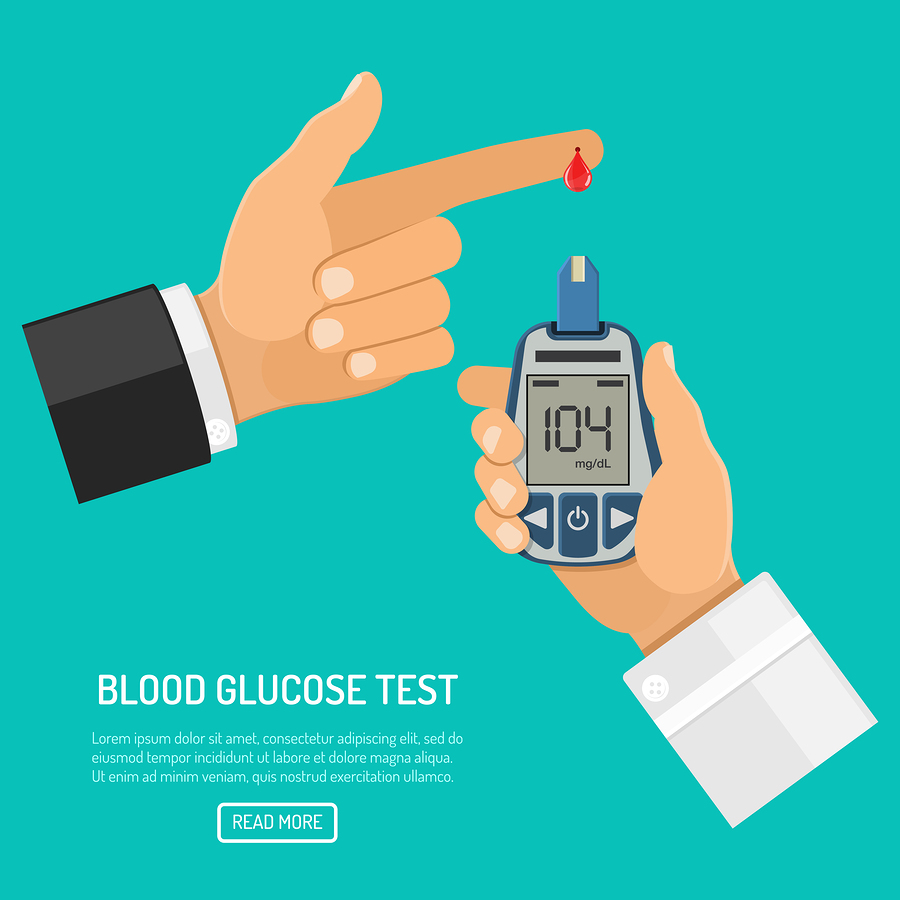Glucose Blood Test

Have you been told you need to take a glucose blood test? If so, here is what you need to know.
Diabetes is one of the fastest growing diseases around the world. The numbers are expected to double in the next 20 years except something drastic is done to curtail it. Most people suffering from diabetes are not even aware of their condition. Symptoms of diabetes could go on for several years before people become aware of their illness.
The most popular method of checking for diabetes is through blood glucose tests. Blood glucose levels are usually checked and if levels are above what is considered normal, further tests are conducted to confirm the finding of diabetes. This article will discuss some of the most common test conducted to detect glucose levels.
Fasting Blood Glucose Test
Fasting blood glucose test is the best and most convenient method of taking blood glucose test. It is generally the most popular means of determining blood glucose levels. This is usually done by asking the individual to refrain from eating any food for 8 hours prior to the test. This normally occurs at bedtime when the individual is asked to fast for 8 hours.
A blood sample of the individual is then taken in the morning and checked for glucose levels. If the blood is found to have less than 100 milligrams per deciliter, then this would mean that individual have normal blood glucose levels and is, therefore, negative for diabetes. If for any reason the blood glucose levels are between 100 to 126 milligrams per deciliters than the individual is diagnosed with prediabetes. A discovery of 126 milligrams per deciliter and above for such test would mean a positive diagnosis of diabetes. Though follow-up tests are needed to conclusively confirm diabetes.
Random (Non-Fasting) Blood Glucose Test
The onset of diabetes is signaled by classic symptoms of frequent urination, fatigue, and thirst. When this happens, a blood sample is taken from the patient and tested for blood glucose levels. If the blood glucose levels are measured to be 200 milligrams per deciliters or above, the individual is most probably diabetic at that stage. However, to conclusively confirm that presence of diabetes, the patient is made to take the glucose tolerance test and if discovered to have high levels of glucose in the blood, then diabetes diagnosis is made.
Oral Glucose Tolerance Test
Though not commonly employed nowadays, Oral Glucose Tolerance Tests are conducted mostly for pregnant women. This is done to determine if a pregnant woman is suffering from pregnancy induced diabetes (also known as gestational diabetes).
Buy a Test Meter and Test Yourself
If you suspect you may be having blood sugar problems, you can always purchase an over the counter meter and test yourself at a variety of times during the day. You can even get a free blood glucose meter to do this. Simply follow the instructions that come with the meter and start testing yourself.
If you are diabetic, it is vital for you to test your blood glucose level or blood sugar levels. A blood sugar tester will tell you how much glucose you have in your blood stream. Many diabetics, most especially Type 1 diabetes will have the need for a blood sugar tester to measure how much glucose they have in their blood stream so they can replenish themselves with the right amount of insulin.
Continuous monitoring of your blood sugar levels, eating a healthy diabetes diet that eliminates all of the white and taking appropriate medication or injection of insulin when necessary is the most effective means of controlling the complications that could arise as a result of diabetes.
Due to the fact that a diabetic’s body does not produce insulin, as in Type I diabetes, or cannot process the insulin that it produces, as found in Type II diabetes, their blood glucose levels can very much more than a perfectly healthy person. Glucose is a vital source of energy in the body, however, it may cause serious problems if there is too much or too little of it in the blood.
A timely blood sugar test can warn you of a potentially dangerous situation if your blood sugar level becomes too high or too low. It is, therefore, important for every diabetic patient to continuously monitor the glucose content of their blood with a blood sugar tester. There are quite a lot of blood sugar testers out there for you to choose from.
Conclusion
Sometimes diabetes mellitus is unavoidable, but there are ways to lessen the risk of getting the disease. You need to stay on a healthy food regimen, while minimizing your intake of foods high in sugar and simple starches. Keep your weight under control and try increasing your overall fiber intake. You will still want to get a diabetes blood test performed regularly for diabetes though, most especially if it runs in the family. That will give you the opportunity to get a proper diagnosis before the diabetes leads to complications down the road.



New! Facebook Comments
What do you think? Share your thoughts below...